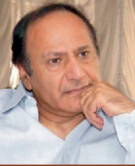
Chaudhary Shujat Hussain
Chaudhary Shujat Hussain is a prominent figure in Pakistani politics, known for his long and influential career in the country’s political landscape. Born on January 27, 1946, in Gujrat, Punjab, Shujat Hussain hails from a family with a rich political legacy. His father, Chaudhary Zahoor Elahi, was a well-respected politician, and this lineage laid the foundation for Shujat Hussain’s own remarkable political journey.
Early Life and Entry into Politics:
Shujat Hussain’s early education was completed at Aitchison College in Lahore, followed by his graduation from Forman Christian College University. His entry into politics was not surprising, given his family’s deep involvement in the field. He joined the Pakistan Muslim League (PML) early in his career and quickly rose through the ranks due to his dedication and commitment to public service.
PML(Q) Leadership:
One of the most notable chapters in Shujat Hussain’s political career was his leadership of the Pakistan Muslim League (Quaid-e-Azam) or PML(Q). The party was founded in 2001, and Shujat Hussain played a crucial role in its formation. Under his leadership, PML(Q) emerged as a significant political force in Pakistan.
Chaudhary Shujat Hussain served as the Prime Minister of Pakistan from 2004 to 2007 during President Pervez Musharraf’s tenure. His tenure was marked by efforts to stabilize the country’s political and economic situation. He also played a pivotal role in forging alliances and forming coalitions, which were instrumental in maintaining political stability during challenging times.
During his leadership, PML(Q) often found itself at the center of power-sharing negotiations and played a key role in Pakistan’s parliamentary politics.
Political Alliances:
Shujat Hussain was known for his political acumen, which allowed him to form strategic alliances with various political parties. His party, PML(Q), often played the role of a kingmaker in Pakistani politics. It was through these alliances that he influenced key political decisions and contributed to the country’s stability.
Contribution to Democracy:
Throughout his political career, Chaudhary Shujat Hussain remained a strong advocate for democracy in Pakistan. He consistently stressed the importance of democratic norms and institutions, even during periods of political upheaval.
Legacy and Impact:
Chaudhary Shujat Hussain’s legacy in Pakistani politics is significant. He is remembered as a seasoned politician who played a crucial role in stabilizing the country during turbulent times. His commitment to democratic values and his ability to form political alliances for the greater good of the nation made him a respected figure in Pakistani politics.
While he may not have held the highest offices for extended periods, his influence and impact on the country’s political landscape cannot be underestimated. Chaudhary Shujat Hussain remains a symbol of political pragmatism and a key figure in Pakistan’s democratic history.
Conclusion:
Chaudhary Shujat Hussain’s long and storied career in Pakistani politics reflects his dedication to public service and his commitment to democratic principles. His ability to navigate the complex and ever-changing political landscape of Pakistan made him a formidable figure. As Pakistan continues to grapple with the challenges of democracy and governance, Shujat Hussain’s legacy serves as a reminder of the importance of political leadership and compromise in shaping the nation’s future.

